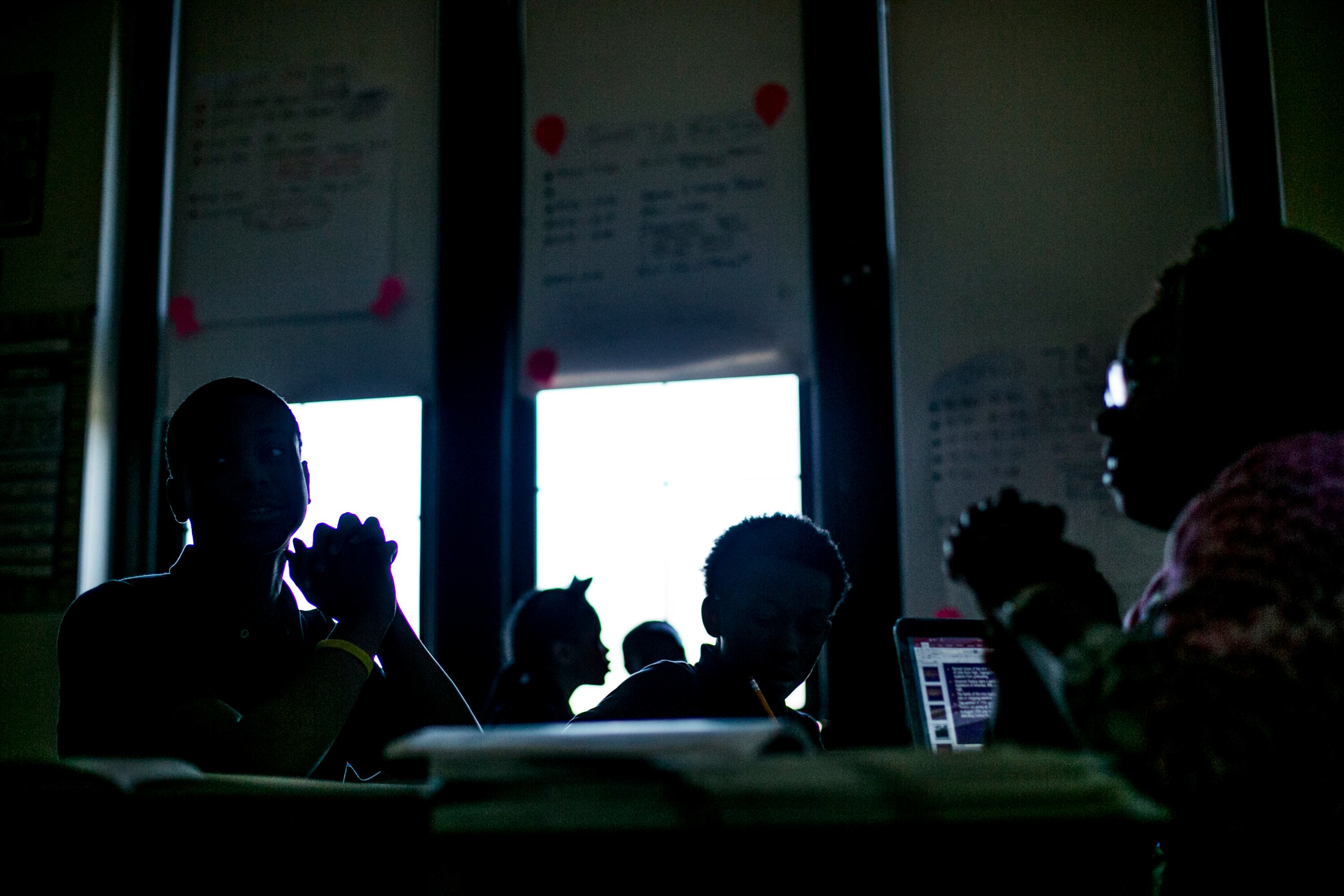Sign up for Chalkbeat Detroit’s free newsletter to keep up with the city’s public school system and Michigan education policy.
After two children likely froze to death while sleeping in a van, some school board members said Tuesday night that they want the Detroit school district to do more to ensure students and their families have safe housing.
Board member Ida Simmons Short questioned whether the Detroit Public Schools Community District could use federal funds to house families experiencing homelessness in hotels. The conversation later turned to whether the district could use its vacant school buildings to provide safe housing, given the challenges families face finding available shelter beds.
Some board members specifically asked Superintendent Nikolai Vitti to look into working with local developers to renovate closed schools and turn them into affordable housing or shelters to house families who are homeless.
“I just want to make sure we’re doing everything we need to do because the last thing that I want is for these children to end up dying somewhere because we didn’t do all we’re supposed to do,” said Short, who was elected to the board in November. “I’m not saying we’re not doing it. We need to make sure.”
The children, their mother, and three siblings had been experiencing homelessness and were sleeping in a van in the parking garage of a Detroit casino, according to news reports of their Monday deaths. The children who died were ages 2 and 9. News reports indicated the 9-year-old attended school in Ecorse Public Schools. But it appears he was enrolled in DPSCD during the last school year.
Vitti said during the meeting that a preliminary review found that the 9-year-old “was at one time enrolled in DPSCD and that there was a request for homeless services. There was an attempt to reach the parent, and that attempt failed, probably because of a disconnected phone.”
The district also has documentation that “the school had reached out to the parent about attendance and enrollment. This was back in the spring of last school year.” He said there is no evidence so far that the district or school “dropped the ball” on providing support services to the family or the student.
Schools in Detroit, both district and charter, have long struggled to identify students who are struggling with homelessness, but DPSCD has made significant progress in recent years. The district had identified 685 students as being homeless during the 2017-18 school year. Today, that number is 3,182, Vitti said.
That number, though, falls far short of reality, Vitti said. Researchers have estimated there are between 7,000 and 14,000 students experiencing homelessness in the city.
Vitti said the district works to ensure students whose families are homeless can enroll in the school that is closest to whatever shelter they may happen to be living in, or wherever they want to enroll in school. He said the district provides gift cards, transportation, coats, and other necessities.
But some parents shy away from letting school officials know they are dealing with housing insecurity.
“Our greatest challenge is the stigma” associated with being homeless, Vitti said.
LaTrice McClendon, the board vice president, asked Vitti whether the district has warming centers, and what it is doing to provide warm environments for students who need it.
Vitti replied that the district doesn’t have warming centers. It would require security and other extra resources “that we’re not funded to provide,” he said.
He said the district can explore opening warming centers if the board wants, but noted that there are liability issues and that taking on such a responsibility would take away from the district’s main function of educating students. He said it would also move into “a territory that the city of Detroit has to own and take responsibility for.”
The district, he said, connects families who are experiencing homelessness with resources provided by the city, as well as nonprofit and charitable organizations. He said he can share that list with board members.
“We’re in a crisis with 3,182 homeless students that we know of,” board member Sherry Gay-Dagnogo said. “And respectfully, just punting to the city, who I know don’t have adequate shelters for families, it’s almost like we’re turning a blind eye and saying we’re giving a list.”
She suggested that the district open up opportunities for local developers to turn any of the district’s closed school buildings into affordable housing.
“I don’t foresee us running shelters, but I do believe that brokering a partnership with the city of Detroit and/or other organizations to allow these facilities to be utilized and attract perhaps even federal funding for the development” is the way to go, Gay-Dagnogo said.
Vitti said that when the district was developing its current facility master plan, there had been discussion about turning vacant buildings into shelters.
“The challenge was the cost,” Vitti said. “We’re talking about $30 million at the minimum to renovate an abandoned building in a way that would meet code for housing purposes.”
Vitti said he is open to working with local developers to take on vacant school buildings for the purpose of providing housing or shelter. Board members Tuesday night discussed the need to make it known to the community that the district would entertain such offers.
Short said she wants the district to be even more proactive.
“Rather than us wait for people to come to us, we have got to go to them. The homeless population is, as you said, Dr. Vitti, going to continue to grow,” Short said.
“It’s important for us to take the lead and for us to approach some of these homeless shelters. If they need space, why not lease them our building or give it to them for a dollar? I really don’t care. As long as we provide a place for our kids and their families to be safe.”
Lori Higgins is the bureau chief for Chalkbeat Detroit. You can reach her at lhiggins@chalkbeat.org.






